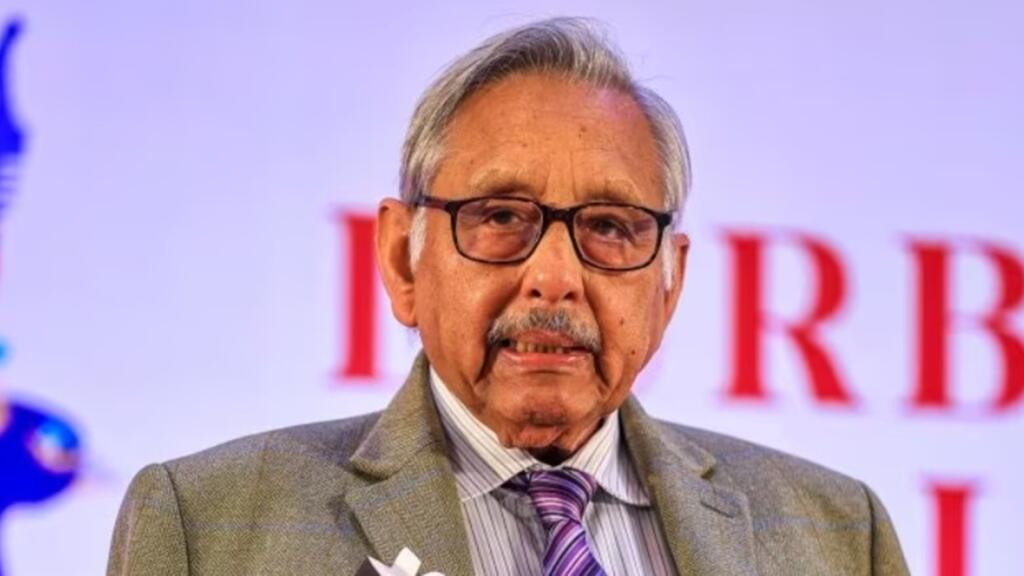The statement made by Congress leader Manishankar Aiyar regarding the 1962 China-India war has become a subject of intense controversy. During a book release event on Tuesday, May 28, 2024, Aiyar referred to the Chinese attack on India in 1962 as ‘alleged’ during a program, sparking doubt. Following this, the BJP labeled it as evidence of Congress’s leaning towards China.
Amit Malviya, the head of BJP’s IT cell, criticized Aiyar’s statement, stating, “Manishankar Aiyar has termed the Chinese aggression in 1962 as ‘alleged,’ which is an shameless attempt to distort the truth. Nehru supported giving a permanent seat to China in the United Nations, and now Rahul Gandhi has made secret agreements with China.”
Malviya further stated, “The Rajiv Gandhi Foundation took money from the Chinese embassy and recommended entry of Chinese companies into the Indian market, based on which Sonia Gandhi’s UPA government opened the Indian market for Chinese goods. This has caused significant damage to the country’s small and medium-sized enterprises (MSMEs). Now leaders like Manishankar Aiyar are attempting to cover up Chinese aggression. What does Congress’s love for China demonstrate after China captured 38,000 square kilometers of Indian territory?”
Congress Damage Control
After Manishankar Aiyar’s controversial statement, Congress went into damage control mode. Congress’s media chief, Jayaram Ramesh, swiftly stated, “Manishankar Aiyar has unconditionally apologized for using the term ‘alleged aggression.’ Due to his age, he should be given some leniency. Congress dissociates itself from his words.”
Social Media Reaction
There has been severe criticism of Aiyar’s statement on social media. People argue that by calling the Chinese attack on India ‘alleged,’ Aiyar has presented history inaccurately. Many consider it as disrespect to the country’s martyrs and soldiers.
Manishankar Aiyar is a well-known and controversial Congress leader. His statements have often been embroiled in controversies. Some of his prominent controversial statements are listed below:
1. ‘Tea-seller’ Remark
Before the 2014 Lok Sabha elections, Manishankar Aiyar made a controversial statement regarding BJP’s Prime Ministerial candidate Narendra Modi. He said, “I assure you that Narendra Modi will never become the Prime Minister in this century. But if he wants to come here and sell tea, we can arrange for that.” This statement was widely opposed by BJP and became a major issue during the election campaign.
2. Statement on Giving ‘Respect’ to Pakistan
In 2015, during an interview with a Pakistani channel, Manishankar Aiyar stated that India should give ‘respect’ to Pakistan to improve relations. He also mentioned that Pakistan possesses nuclear bombs, so India should have better relations with them. This statement also faced considerable criticism.
3. Referring to Former Prime Minister Manmohan Singh as ‘Akbar’
In 2013, Manishankar Aiyar compared the then Prime Minister Manmohan Singh to the Mughal Emperor Akbar. He said that Manmohan Singh’s rule was like that of Akbar. This statement also stirred controversy within the Congress party itself.
4. ‘Lowly’ Comment towards Prime Minister Narendra Modi
During the 2017 Gujarat Legislative Assembly elections, Manishankar Aiyar addressed Prime Minister Narendra Modi as a ‘lowly person.’ He said, “I don’t understand how the Prime Minister can be such a lowly person.” After this statement, Aiyar was suspended from the Congress party and later had to apologize.
5. Controversial Comment on the Indian Army
In another statement in 2017, Manishankar Aiyar criticized the Indian Army. He said that the Indian Army was killing innocent people in Jammu and Kashmir. This statement also faced widespread criticism and was seen as disrespect towards the Indian Army.
Conclusion
Manishankar Aiyar’s remarks frequently ignite controversy, leaving his party in precarious positions. His words reverberate beyond mere political ramifications, resonating throughout social and international spheres. Aiyar’s propensity for contentious commentary has become emblematic, inviting scrutiny and discord. Consequently, his words wield influence far beyond their immediate context, perpetuating a cycle of contention and consequence.
ALSO READ: This is how, a simple Slip of Tongue is misused in the politics!
